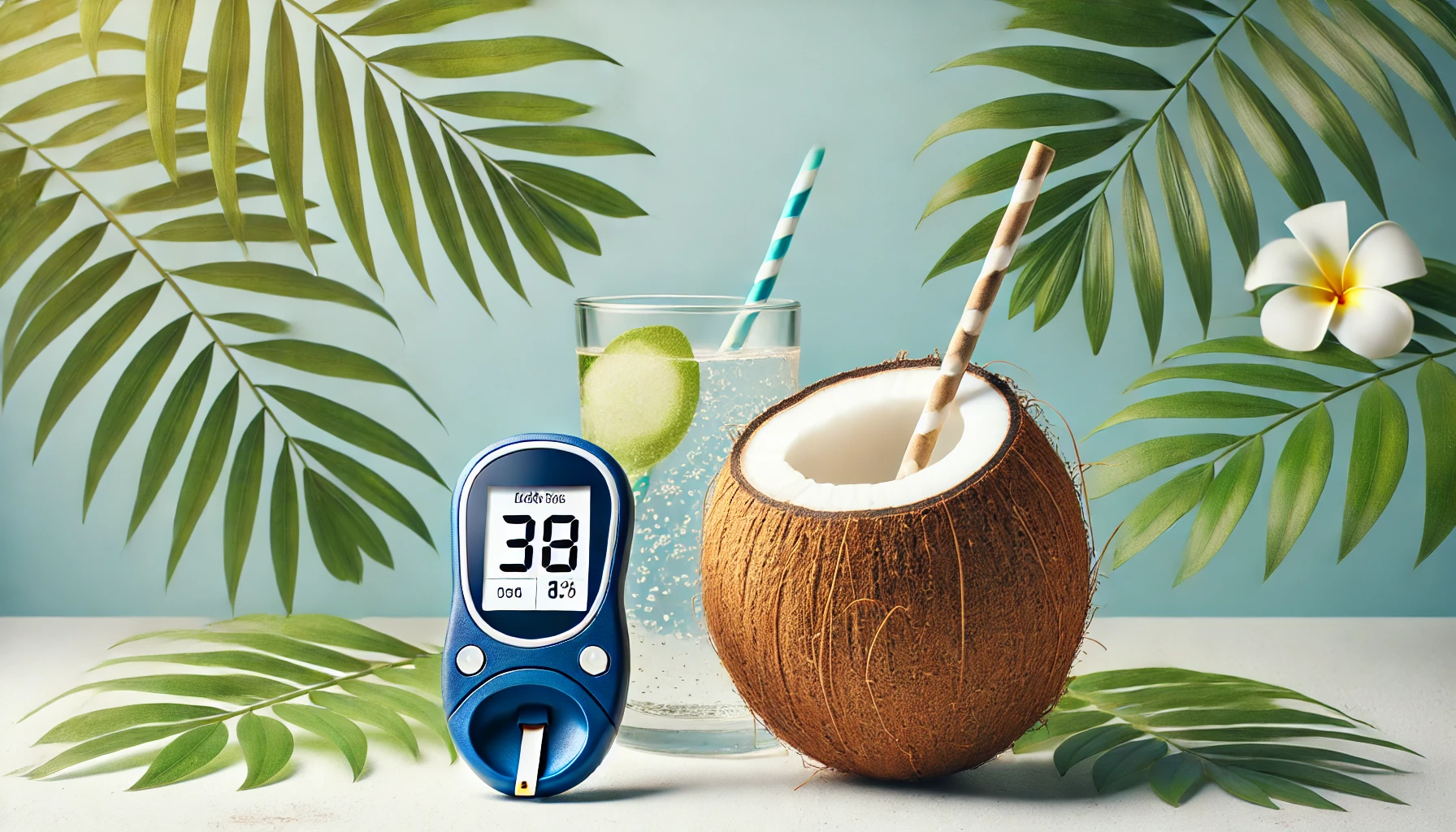Is coconut water good for diabetic patients? Learn about its benefits, risks, nutritional value, expert opinions, and the right way to consume it for diabetes management.
Introduction
Coconut water is a refreshing natural drink known for its hydrating properties and nutritional benefits. But is it safe for diabetic patients? This article explores the health benefits, potential risks, and expert opinions regarding coconut water for people with diabetes.
Nutritional Profile of Coconut Water
Coconut water is packed with essential nutrients. Here is a breakdown of its nutritional content per 100 ml:
| Nutrient | Amount per 100 ml |
|---|---|
| Calories | 19 kcal |
| Carbohydrates | 3.7 g |
| Sugars | 2.6 g |
| Fiber | 0.2 g |
| Protein | 0.7 g |
| Potassium | 250 mg |
| Magnesium | 25 mg |
| Sodium | 105 mg |
| Vitamin C | 2.4 mg |
Benefits of Coconut Water for Diabetics
1. Low Glycemic Index (GI)
Coconut water has a relatively low glycemic index (GI of around 54), which means it does not cause a rapid spike in blood sugar levels.
2. Rich in Electrolytes
Diabetic patients often face dehydration issues. Coconut water replenishes lost electrolytes like potassium and magnesium, which are essential for nerve and muscle function.
3. Supports Heart Health
Coconut water helps maintain blood pressure levels due to its high potassium content, which can be beneficial for diabetics who are prone to heart problems.
4. Contains Antioxidants
The antioxidants in coconut water help reduce oxidative stress, which is commonly observed in diabetes.
5. Aids in Digestion
Coconut water is rich in fiber, which promotes digestion and prevents constipation, a common issue in diabetics.
Risks and Precautions
While coconut water has many benefits, diabetic patients must consume it cautiously.
1. Sugar Content
Although coconut water contains natural sugars, excessive consumption can elevate blood sugar levels. It is best to consume it in moderation.
2. Portion Control
Diabetic individuals should limit their coconut water intake to one small glass (150-200 ml) per day to avoid excessive carbohydrate consumption.
3. Choose Fresh Coconut Water
Packaged coconut water may contain added sugars and preservatives. Always opt for fresh, unsweetened coconut water.
Expert Opinions
Dr. Rajesh Mehta, Endocrinologist
“Coconut water can be a good choice for hydration in diabetic patients if taken in controlled amounts. However, it should not replace plain water or be consumed in excess.”
Dr. Ananya Sharma, Nutritionist
“I recommend coconut water for diabetic patients as it provides essential electrolytes and hydration. But it is crucial to monitor blood sugar levels and avoid overconsumption.”
FAQs
1. How much coconut water can a diabetic person drink per day?
A diabetic individual should limit their intake to 150-200 ml per day to avoid excess sugar consumption.
2. Can coconut water lower blood sugar levels?
While coconut water has a low glycemic index, it does not directly lower blood sugar levels. It can help maintain hydration and provide essential nutrients.
3. Is packaged coconut water safe for diabetics?
Packaged coconut water often contains added sugars. It is best to choose fresh coconut water to avoid unnecessary sugar intake.
4. Can coconut water replace regular water for diabetics?
No, coconut water should be consumed as a supplement, not a replacement for regular water.
5. Are there any side effects of drinking coconut water for diabetics?
Excessive consumption can lead to an increase in blood sugar levels. It may also cause bloating in some individuals.
Conclusion
Coconut water can be a beneficial drink for diabetic patients when consumed in moderation. Its natural electrolytes, antioxidants, and low glycemic index make it a good hydration option. However, diabetics should be mindful of portion sizes and opt for fresh coconut water instead of packaged versions with added sugars.
By following these guidelines, diabetic patients can enjoy coconut water without negatively affecting their blood sugar levels. Always consult a healthcare professional before making any dietary changes.










